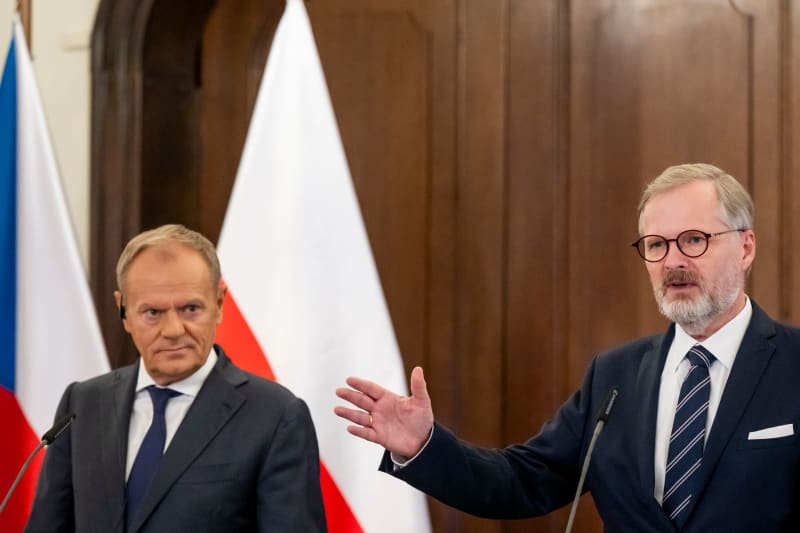At a recent meeting in Prague, Polish Prime Minister Donald Tusk and Czech Prime Minister Petr Fiala committed to closely cooperating in the civilian use of nuclear energy. Tusk indicated that Poland is starting from scratch in the nuclear sector, whereas the Czech Republic boasts decades of experience in this field. Fiala expressed confidence in nuclear energy as a viable and necessary future energy source, signaling a strong collaborative spirit between the two nations as Poland embarks on its substantial plans to develop nuclear power infrastructure. This partnership is poised to leverage the Czechs’ expertise to help Poland navigate its entry into the nuclear energy arena.
Poland’s investment in nuclear power is significant, as evidenced by its awarding of a contract to the American firm Westinghouse for the construction of its first nuclear reactor in 2022. This facility is expected to become operational by 2033, with plans for an additional five reactor units in the pipeline. Such investments underscore Poland’s commitment to diversifying its energy portfolio and reducing reliance on coal, which has been a dominant source of energy. Nuclear energy is seen as crucial for Poland’s long-term energy strategy, aligning with broader efforts to meet climate commitments and enhance energy security.
In contrast, the Czech Republic has long been active in nuclear energy generation, operating six reactors at its Temelin and Dukovany sites. This established framework allows the Czech Republic to share valuable operational insights and technical knowledge with Poland as it ventures into nuclear energy generation. Collaborative efforts may encompass training personnel, sharing regulatory insights, and exploring joint research initiatives. The relationship symbolizes not just economic cooperation but also a commitment to regional energy security, reflecting both countries’ interests in stable and sustainable power sources.
Beyond nuclear energy, the two leaders addressed concerns regarding the Schengen area’s integrity, specifically in light of Germany’s recent introduction of border checks aimed at managing unauthorized migration. Both Tusk and Fiala voiced unease about these measures, indicating they conflicted with the principles of freedom of movement integral to the European Union. Fiala emphasized that solutions to illegal migration must be found through enhanced management of EU external borders rather than within the Schengen zone, underlining a broader commitment to maintaining EU values of openness and integration.
The discussions revealed an alignment of interests between Poland and the Czech Republic in both energy and immigration policy, showcasing a unified front in regional challenges. The leaders’ focus on nuclear energy as a cornerstone of future policy signifies a strategic pivot towards more sustainable and environmentally sound energy solutions. Furthermore, their dialogue on migration reflects an overarching concern for preserving the fundamental freedoms of EU membership, indicating that both countries are navigating the complexities of policy implementation while maintaining a commitment to core European principles.
Overall, the meeting symbolizes a forward-looking collaboration between Poland and the Czech Republic, united in their aspirations for energy independence through nuclear power and a harmonious approach to migration issues. As Poland embarks on its nuclear journey, the Czech Republic stands ready to offer support and expertise, fostering a partnership that may serve as a blueprint for similar collaborations in Europe. The commitment to shared values and proactive solutions sets a positive tone for future cooperation as both nations strive to address contemporary challenges while enhancing their sovereignty and energy resilience.

